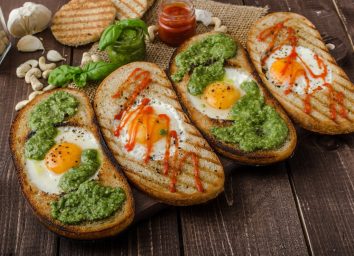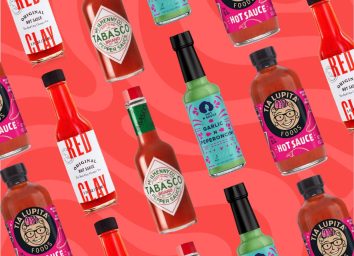One Major Side Effect of Eating Hot Sauce, According to Science
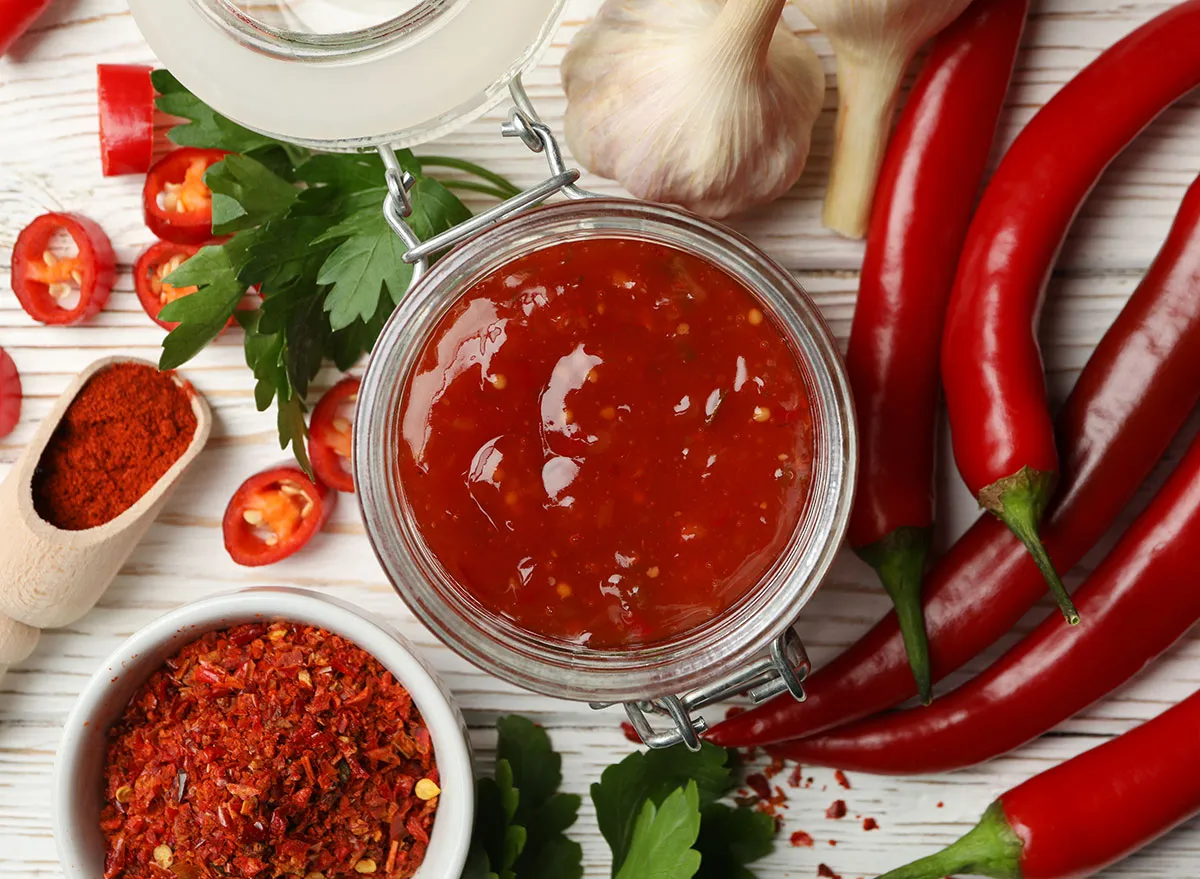
Instead of celebrating Cinco de Mayo with a 450-calorie frozen margarita, toast Mexico's victory at the Battle of Puebla with a tongue-searing shot of hot sauce. You may end up consuming fewer calories over the course of the day. One surprising side effect of eating hot sauce, jalapenos, ghost peppers, or anything spicy hot may be reduced appetite and greater calorie burn.
The secret ingredient in the sauce is capsaicin, the chemical compound that gives chili peppers and hot sauce their spicy bite. Dozens of studies suggest ways in which you might ultimately lose weight by stimulating your tastebuds with this zero-calorie condiment.
Learn more about how hot sauce can promote weight loss, according to science, and then reap the benefits with these 20 spicy recipes here.
Burn your tongue, eat less.

A study at Perdue University found that spicing up your foods with red pepper may curb appetite. But it seems to work best if you're not a regular eater of spicy foods. In the research published in Physiology & Behavior, 25 overweight people—13 of whom liked spicy foods and 12 who rarely ate it—ate both non-spiced meals and meals with red pepper added. Energy intake and expenditure were monitored, and core body and skin temperature were measured. Analyzing the results, the researchers found that participants burned more calories after eating the spicy meals compared to the blander meals. In addition, the subjects who rarely ate spicy foods experienced a decrease in hunger, especially cravings for fatty, salty, and sweet foods. That didn't happen in the people who reported liking spicy food, suggesting that the unfamiliarity of the hot stuff caused the greater effect and once people became accustomed to the heat, the spice would lose its efficacy.
Save calories, drop pounds.
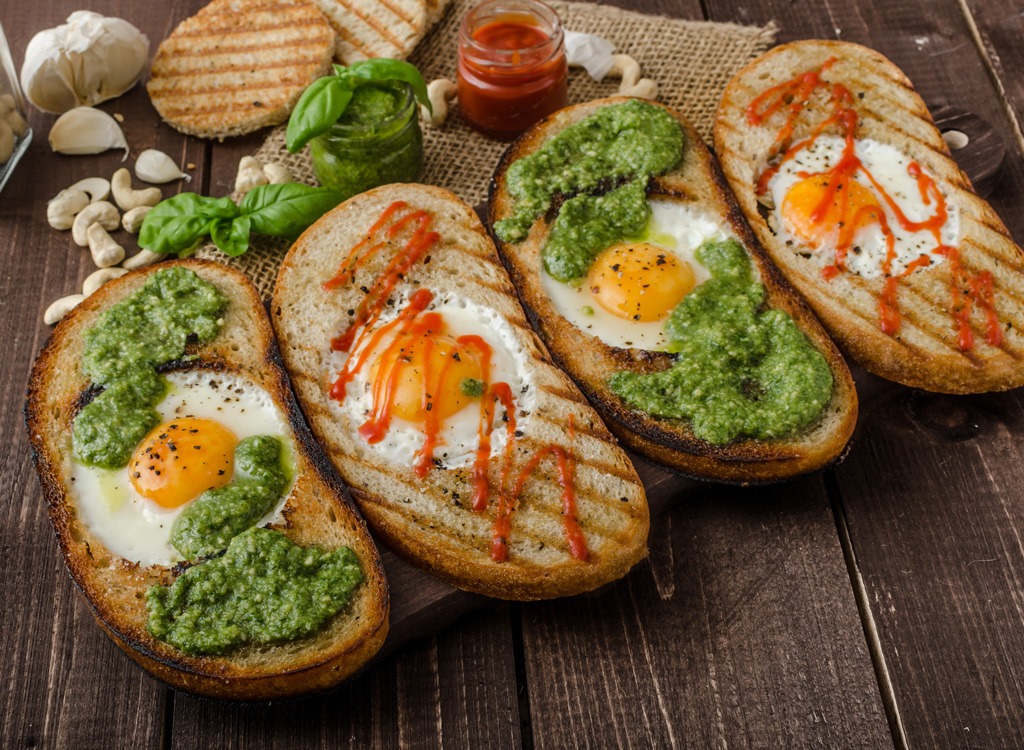
Substituting a couple of dashes of Tabasco on your broccoli instead of 2 pats of butter will save you a quick 72 calories. That daily savings amounts to 26,280 calories over the course of the year or about 7.5 pounds! Weight gain isn't the only thing you'll experience by eating butter too frequently. Check out these 6 Dangerous Side Effects of Eating Too Much Butter, According to Experts.
Make low-cal veggies more appealing.
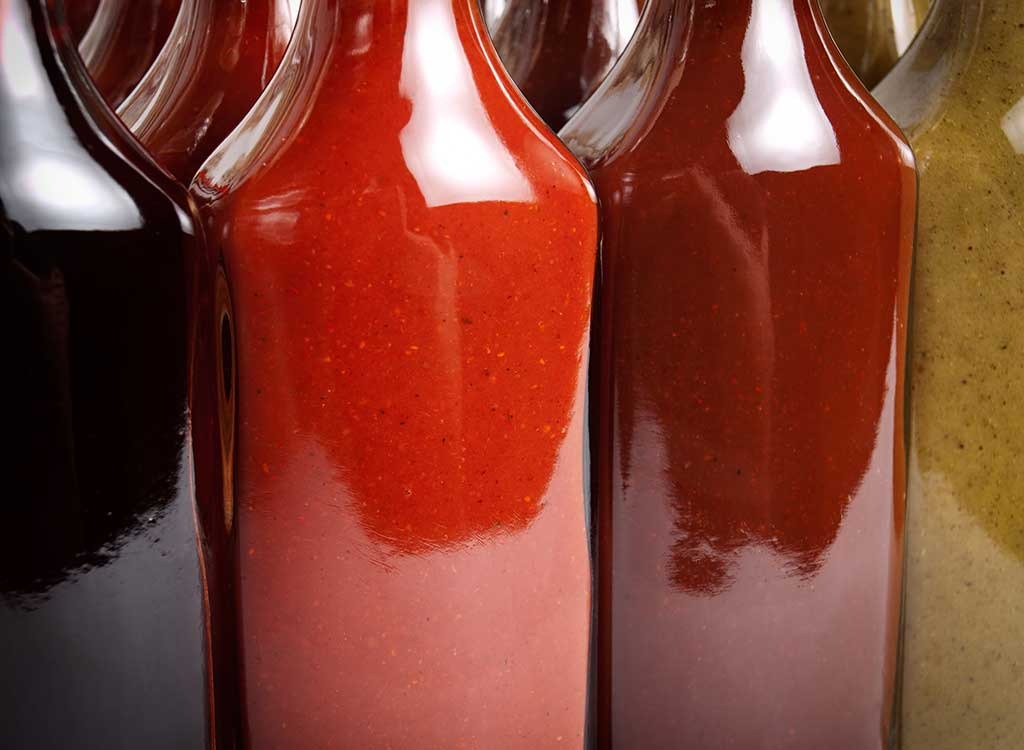
Many weight-loss gurus recommend using spices and other zero-calories seasonings and condiments to add a pop of flavor to blander-tasting vegetables. Beachbody super trainer Autumn Calabrese calls them "freebies" in her book Lose Weight Like Crazy, Even If You Have a Crazy Life. Registered dietitian Ilana Muhlstein, RD, author of You Can Drop It: How I Lost 100 Pounds Enjoying Carbs, Cocktails and Chocolate—and You Can, Too! and Eat This, Not That! Medical Expert Board member, calls them "accessories," a powerful supporting role for her diet plan. "Accessories like hot sauce will be one of your favorite allies in your approach to weight loss because they will make your veggies (and proteins) taste absolutely delicious!" she says. And the more nutritious vegetables you fill up on, the easier it will be to lose weight, Muhlstein says.
Boost your fat-burning metabolism.
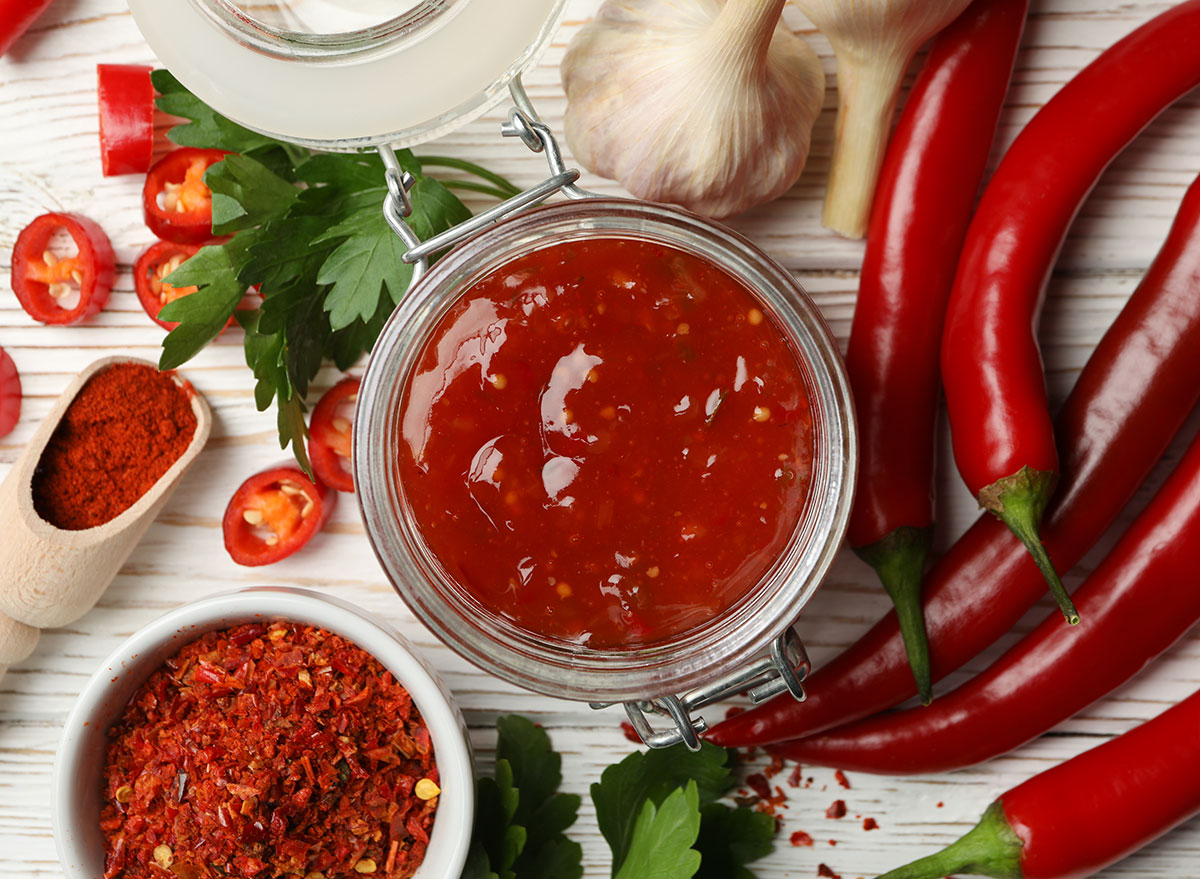
A meta-analysis of 20 clinical trials published in 2012 in the journal Appetite observed that consuming capsaicin, the bioactive chemical in chili peppers, resulted in an increase in energy expenditure of about 50 calories a day. While that sounds like a small effect, researchers believe it would produce significant weight loss over a period of one to two years. Researchers also observed that regular consumption of red pepper resulted in significantly reduced abdominal fat and appetite. Scientists theorize that capsaicin may stimulate TRPV1 receptors that are involved in the regulation of insulin secretion and glucose metabolism.
For more weapons to add to your fight against fat, check out Sneaky Weight Loss Tricks That Actually Work, According to Science.
